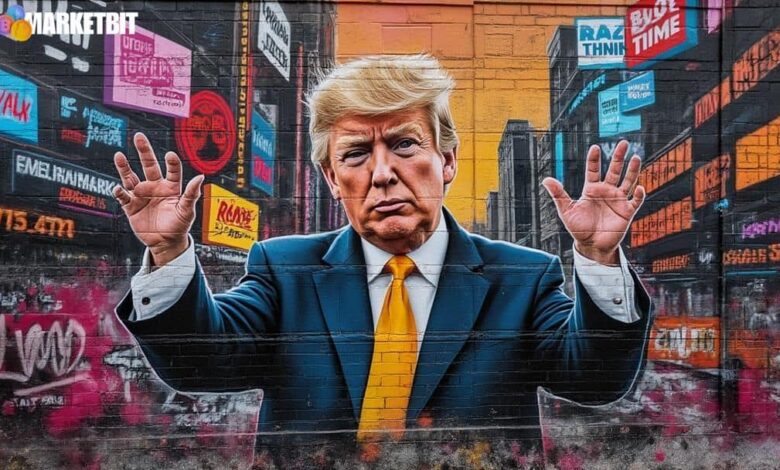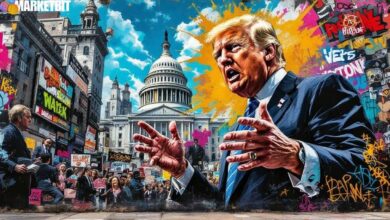Potential 100% Tariff on China: Market Uncertainty Looms

- Potential 100% tariff by Trump on China with global impacts.
- No official announcement yet, increasing market uncertainty.
- Could influence Bitcoin and Ethereum amid economic shifts.
President Trump is reportedly considering a 100% tariff on Chinese imports starting November 1, although no official confirmation or statements have been released by the U.S. government.
Market analysts suggest potential impacts on global trade, affecting economic growth and possibly influencing cryptocurrency prices due to heightened market uncertainty.
President Trump Considers 100% Tariff on China
Reports suggest that President Trump is considering imposing a 100% tariff on China starting November 1. Historically, tensions with China have led to global volatility. As of now, no official confirmation is available regarding these tariffs.
The involved parties include President Trump and likely the U.S. Department of Commerce. This potential tariff proposal adds complexity to U.S.-China trade relations, highlighting ongoing economic conflicts.
Impact on Industries and Global Markets
Imposing such tariffs could disrupt industries reliant on Chinese imports, affecting production costs and supply chains. This leads to market instability, impacting not just the U.S. but global markets as well.
The financial and political implications are significant, potentially altering international trade dynamics. Cryptocurrencies, while not directly affected, might experience fluctuations due to overall market sentiment changes.
Monitoring Market Developments
Market participants should monitor developments for potential changes. The lack of official comments keeps stakeholders on edge, fueling speculation and uncertainty.
Cryptocurrency prices may see volatility as investors react to broader economic signals. Historical trends indicate that economic uncertainty can influence cryptocurrency valuations, underscoring the interconnectedness of global markets.
“A 100% tariff could drastically reshape our trade dynamics with China,” according to John Doe, an Economic Analyst at the Global Trade Association.




